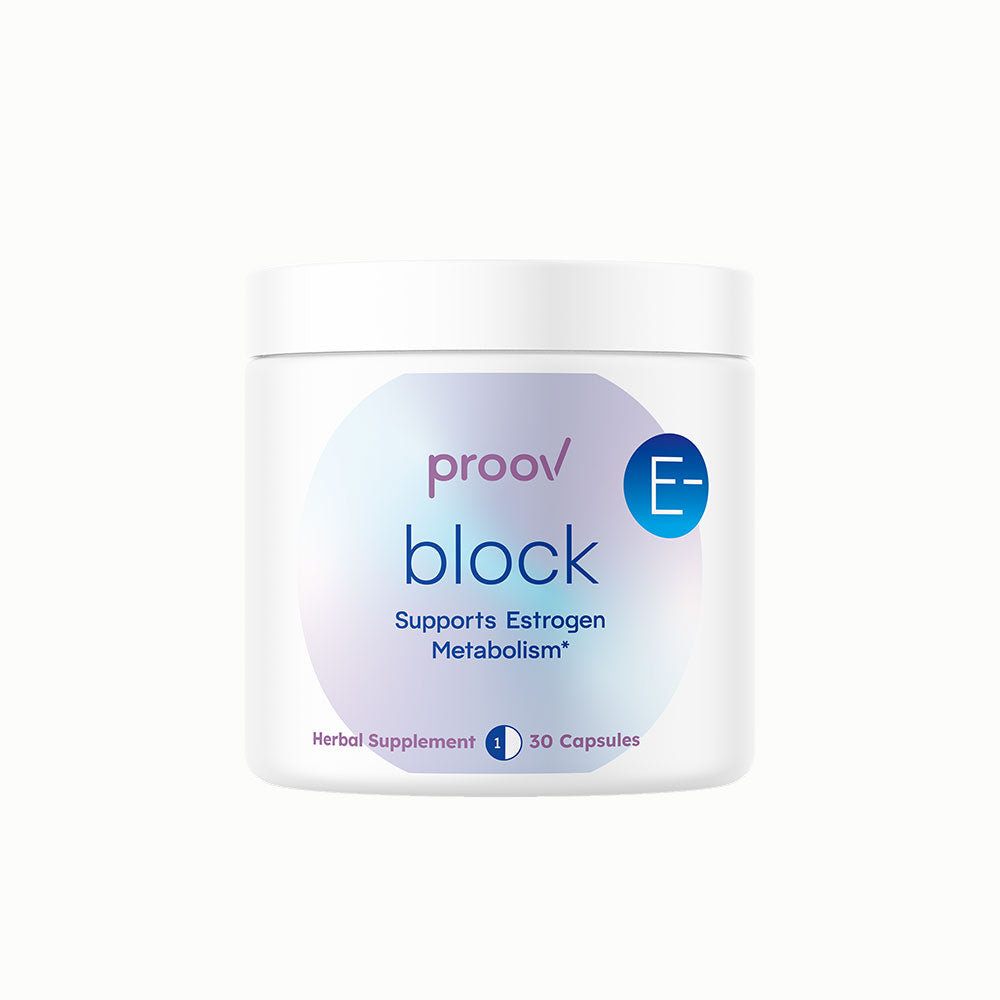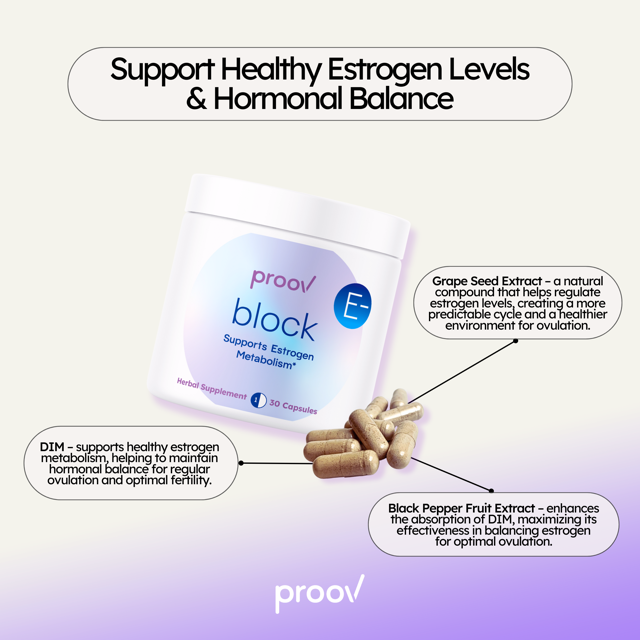Menopause is defined as having gone 12 months without a menstrual period, vaginal bleeding, or spotting, marking the end of a woman’s reproductive years. The time period leading up to this milestone, which typically spans two to eight years (with four years being the average), is called perimenopause or menopausal transition. It typically starts between the ages of 45 and 55, though it can sometimes begin as early as the mid-30s.
During perimenopause, your ovaries release eggs less frequently and unpredictably, and your body gradually produces less estrogen and progesterone. This hormonal shift can lead to irregular periods, hot flashes, night sweats, vaginal dryness, mood swings, sleep disturbances, and other symptoms. As these symptoms start to affect your quality of life, you may begin to consider the role of birth control. If you have burning questions like, “Can birth control delay menopause?” “Should I stop taking birth control during perimenopause?” or “Does it act as hormone replacement therapy?”—then you’ve landed on the right resource.
But first, let’s quickly explore the two primary types of birth control—hormonal and non-hormonal.
Hormonal vs. Non-Hormonal Birth Control: What's the Difference?

Hormonal birth control works by delivering synthetic forms of estrogen and/or progesterone (called progestin) to prevent ovulation and regulate menstrual cycles. This not only helps in preventing pregnancy but also can alleviate some of the symptoms associated with perimenopause, like irregular periods and heavy bleeding. Examples include the pill, patch, vaginal ring, and intrauterine device (IUD). Some hormonal birth control may deliver progestin only, while others—known as combined hormonal contraceptives—release both estrogen and progestin.
Non-hormonal birth control, on the other hand, does not interfere with your body’s hormone levels. These methods are purely mechanical or barrier-based, and while effective for preventing pregnancy, they don’t affect the menstrual cycle and don’t give the same symptom relief for perimenopausal symptoms that hormonal methods might offer. Examples include copper IUDs, condoms, cervical caps, and diaphragms.
Does birth control act as hormone replacement therapy?
If you are wondering whether hormonal birth control can act as hormone replacement therapy (HRT), the simple answer is no. Although both involve hormones, they were made to serve different purposes. Birth control delivers higher doses of hormones to stop ovulation and prevent pregnancy, though they offer extra benefits for menopausal women. HRT, on the other hand, typically provides lower doses—or just enough—to replace declining hormones and manage menopausal symptoms. Birth control dosages are generally standardized by manufacturers, while HRT doses are tailored to a woman's specific needs and symptoms.
Should I stop taking my birth control in perimenopause?
You shouldn’t stop taking your birth control just yet—not until you’ve officially reached post-menopause, which is the time period after you haven’t had a period or spotting in the last 12 months.
As we age, especially after 30, it’s natural for our ovarian reserve—the pool of resting and developing eggs we’re born with—to diminish in both quantity and quality, leading to a decline in fertility. Some women trying to get pregnant at this time may need to diligently track their cycle and rely on fertility treatment(s). Because of this, there’s a common misconception that by the time women enter perimenopause, when periods become less regular and menopause symptoms begin, pregnancy and birth control are a thing of the past.
We hate to break it to you, but that’s not true. Even with irregular periods, you’re still ovulating. Therefore, you can still get pregnant, though you are far less likely to.
What are the benefits of remaining on birth control in perimenopause?
Beyond preventing pregnancy, birth control—specifically combination birth control pills, which contain both estrogen and progestin—offers additional benefits for perimenopausal women. By stabilizing the hormone fluctuations that occur during menopause, they help reduce the severity or completely alleviate symptoms like irregular periods, cramping, heavy bleeding, hot flashes, night sweats, mood swings, headaches, and even skin changes like acne.
What’s more, being a woman is a risk factor for osteoporosis and fractures because we have smaller and lighter (read: less dense) bones than men. Unfortunately, being menopausal compounds this risk, making us four times more likely than men to develop osteoporosis and bone fracture. This is largely due to the decline in estrogen, which plays a vital role in protecting bone health. The good news is that the estrogen in birth control pills helps compensate for this decline, maintaining bone density and reducing the risk of bone-related problems. Studies have shown that these pills may also reduce women’s risk of developing ovarian and uterine cancers, as well as rheumatoid arthritis.
What are the risks of staying on birth control in perimenopause?

Birth control is generally safe, posing no health risks to women in perimenopause. However, taking combination birth control pills over the age of 35 is linked to an increased risk of blood clots, stroke, heart attack, and breast cancer. This risk is significantly higher if you smoke, are overweight or obese, or you have a history—or heightened risk—of certain health conditions, including:
- Breast cancer.
- Blood clots.
- Diabetes.
- High blood pressure.
- Cholesterol problems.
- Cardiovascular disease.
- Liver disease.
On a positive note, the increased risk of blood clotting from birth control rapidly drops within two to four weeks after stopping, according to a recent press release by the American Society of Hematology (ASH).
As you transition fully into menopause, you may consider hormone replacement therapy (HRT) as a long-term solution for managing the tough symptoms and supporting your health. Unlike birth control, which is more like a one-size-fits-all solution primarily formulated for family planning (read: preventing pregnancy), HRT is tailored and specifically designed for menopausal women with the aim of replacing the hormones the body no longer produces. And although HRT carries similar health risks to birth control, these risks are much lower.
Can birth control delay menopause?
No, birth control can’t delay menopause or fast-track your journey through perimenopause. It doesn’t prevent or reverse the hormonal changes that lead to menopause. The age at which you reach menopause is primarily influenced by factors like your genetics, lifestyle habits, and overall health.
Birth control simply helps to reduce or mask the symptoms of perimenopause, allowing women to feel and function better during this time. Consequently, women who consistently use birth control pills over a long period may fail to know when they’ve reached perimenopause. For this reason, women (particularly those in their late 40s) are often advised to pause their hormonal birth control for a few weeks to watch for menopause symptoms like hot flashes and night sweats.
When should I speak to my doctor?
Making decisions about starting or stopping birth control, choosing the right type, or exploring alternatives like HRT can be overwhelming, especially if you don’t feel confident relying on your gut feelings or the experiences of others. The best time to speak to your doctor is when you experience new or worsening symptoms or if you need expert advice tailored to your unique health history and specific needs.
When speaking with your doctor, be sure to have an open and honest conversation about your symptoms and how they affect your quality of life, any risks or concerns you may have, and the treatment options you're most comfortable with.












